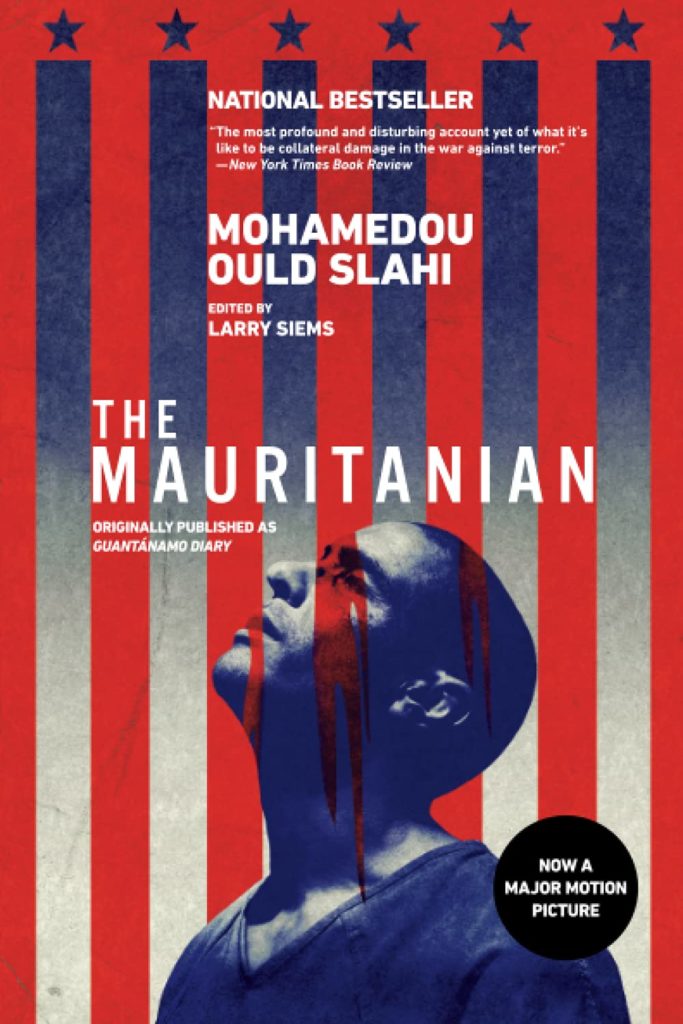Mohamedou Ould Slahi published his account of torture and abuse during his imprisonment for 14 years in Guantanamo Bay’s Detention Center — without any charges. He is the first Guantanamo prisoner to publish a memoir while still imprisoned, titled “The Mauritanian.”
On Nov. 28, 2001, soldiers kidnapped Slahi from his home country, Mauritania, and transferred him to a Jordanian prison for interrogation. About eight months later, interrogators stripped, blindfolded, shackled and transferred him to the U.S. military’s Bagram Air Base in Afghanistan for further questioning. In a third transfer, he moved to Guantanamo Bay, Cuba, where military personnel abused and tortured Slahi.
Interrogators confiscated his pen and paper, until they influenced him to write false confessions to having connections with 9/11. Slahi wrote his story to his lawyers, Nancy Hollander and Theresa Duncan, and fought for 7 years with the U.S. government to get his original manuscript released publically. The U.S. government refused his manuscript’s release multiple times, and classified it as secret. When they allowed publication, they only allowed a censored work.
Slahi revealed the unjust physical, mental and sexual abuse by his interrogators and guards. He stated that one of the sergeants on the base told him: “In the eyes of the Americans, you’re doomed. Just looking at you in an orange suit, chains and being Muslim and Arabic is enough to convict you.”
Before imprisonment, Slahi was residing in Mauritania with his family as an electrical engineer. He was wrongfully accused of being the top leader of the terrorist group that attacked on 9/11 and having connections to the Millennium plot. No charges were ever brought against him.
These were all accusations with no basis, and he was finally released on October 17, 2016.
Throughout his 14 years in prison, he was never given trial for being wrongfully labeled as a leader for a terrorist organization.
“The Mauritanian” is a very eye-opening piece about the traumatic experience of an innocent man in a detention center with many human rights complaints against it. Slahi worked alongside an editor, Larry Siems, to put his story together and overcame the language barrier by learning English while he was in Guantanamo. He stated in his book: “Many of my brothers here are losing their minds, especially the younger detainees, because of the conditions of detention.” Slahi is free and his story is out, but Guantanamo Bay is still open and still violating human rights of men with no charges or trial.
Slahi wrote in his book: “Human beings make use of torture when they get chaotic and confused. And Americans certainly got chaotic, vengeful, and confused after the September 11, 2001, terrorist attacks.” He also wrote: “The U.S. government started a secret operation aimed at kidnapping, detaining, torturing or killing terrorist suspects, an operation that has no legal basis.”
Every page of the book reveals the honest, intelligent and kind man behind the words. It’s disturbing to know that a detention center funded by American taxpayers caused so much chaos for Slahi and other detainees. While no one can undo what has passed, people need to be aware of the oppression still taking place under the United States’ name post 9/11.
“If Americans are willing to stand for what they believe in, I also expect public opinion to compel the U.S. government to open a torture and war crimes investigation,” Slahi stated. The public should read his truth, digest it, and address the current cases of men who are currently in similar situations in Guantanamo.
ygsz6z@mail.umkc.edu








